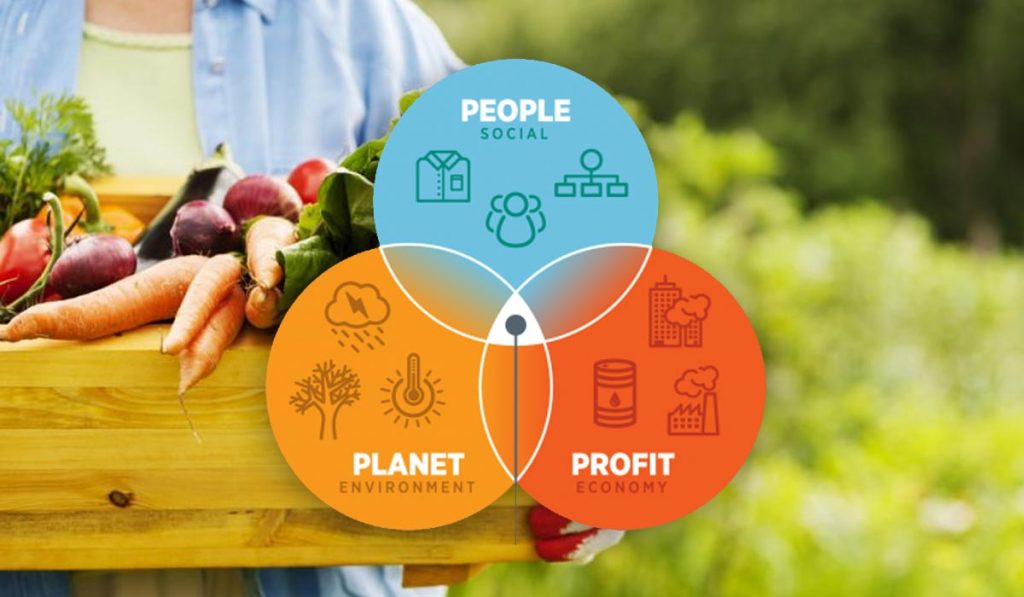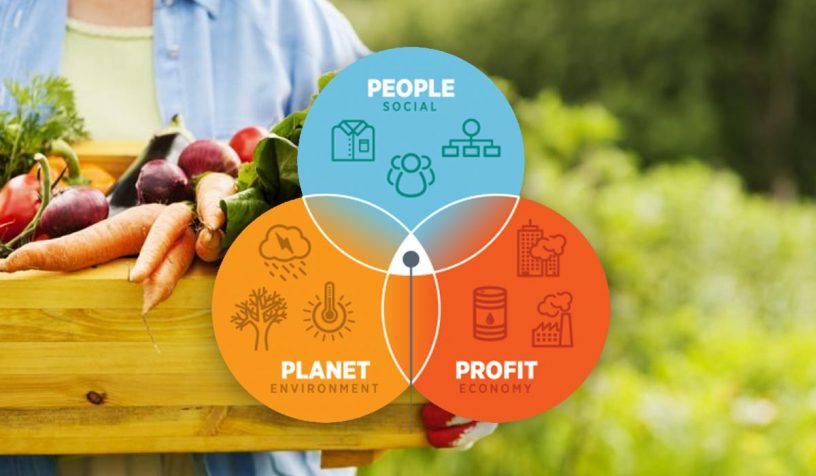
The paper provides a set of enablers with high driving power that can significantly influence the sustainability practices and policies in the agriculture supply chain.
Authors
Sandeep Singh, Assistant Professor at Jindal Global Business School, O.P. Jindal Global University, Sonipat, Haryana, India.
Samir K. Srivastava, Operations Management Group, Indian Institute of Management, Lucknow, Uttar Pradesh, India.
Summary
This paper aims to address the conceptual and practical challenges in integrating triple bottom line (TBL) sustainability in the agriculture supply chain (ASC). It identifies the key enablers for each of the three dimensions of TBL sustainability, analyses their causal relationships as well as cross-dimensional interactions under each TBL dimension. Further, it develops a decision support framework (DSF) for the assessment of TBL sustainability practices and policies in ASC and validates it through a case study.
Methodology
An interpretive structure modelling (ISM) methodology is deployed to establish the interrelationships among all TBL enablers and to identify the enablers with high driving power on sustainable ASC. Brainstorming by a group of experts was used to identify the relevant enables. Finally, a DSF was developed as a resultant of ISM.
Findings
The paper provides a set of enablers with high driving power that can significantly influence the sustainability practices and policies in ASC. The social enablers directly help to enhance the effect of economic enablers and collectively these enhance the effect of environmental enablers. If agriculture firms and supply chains design innovative policies and develop practices based on these enablers, they can achieve sustainable ASC. Consequently, the living standards of the people directly or indirectly associated with the agriculture firm or supply chain can be improved without compromising on economic performance.
Research Implications
The paper consolidates the fragmented knowledge of sustainable supply chain management in the agriculture sector and suggests a DSF to policymakers, managers and practitioners for assessing TBL sustainability practices and policies. The DSF has wide applicability in other sectors of production and operations management as these sectors also face the challenge of achieving TBL sustainability across their supply chain.
Practical Implications
The DSF, developed in the paper, is a useful tool for practitioners to frame and analyse sustainability initiatives and policies for ASC. A firm or supply chain may achieve TBL sustainability if it succeeds in uplifting the social status of its stakeholders.
Social Implications
It is a first step towards addressing the practical challenge of integrating sustainability in the agriculture sector of emerging economies and provides a path to improve the livelihood of people in the agriculture sector. Stakeholder engagement with a focus on collaboration and awareness may lead to the desired social and environmental consequences. Potential adverse social effects also need to be considered.
Originality
This paper focusses on the so far rather neglected but essential aspect of integrating TBL sustainability in the agriculture sector of emerging economies. The hierarchal representation and classification of the TBL sustainability enablers of sustainability is a unique effort in the field of ASC. Development of DSF is one of the first attempts to create a mapping between various enablers of TBL sustainability. The novelty of the study lies in the sector-specific, holistic evaluation of TBL sustainability policy measures that may lead to improvements in practice.
Published in: Sustainability Accounting, Management and Policy Journal
To read the full article, please click here.


